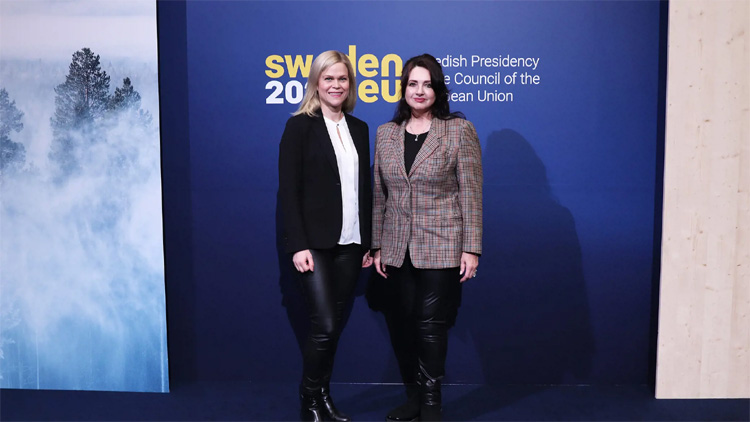On 16–17 February, the Swedish Presidency of the Council of the European Union, in cooperation with the European Commission, organised a conference on the implementation of national action plans against racism.
Some 150 participants gathered in Stockholm to exchange experiences and draw inspiration from the Member States’ efforts in this area.
Considering that many Member States have adopted, or will soon adopt, national plans against racism as part of the EU Anti-Racism Action Plan, the conference focused on moving from plan to action. In panel discussions and breakout sessions, the participants were able to share experiences and knowledge from their own Member States.
Minister for Gender Equality and Deputy Minister for Employment Paulina Brandberg delivered the welcoming address and highlighted issues such as the EU’s fundamental values.
“All forms of racism and intolerance ultimately poses a threat to the fundamental values on which our Union rests. A union in which the equal value of all people, and equal rights and opportunities, must be self-evident, both in theory and in practice.”
Helena Dalli, the EU Commissioner for Equality, gave the keynote speech in which she emphasised the importance of tackling all forms of racism, including microaggressions, hate crime and structural racism.
One of the speakers was Rossalina Latcheva from the EU Agency for Fundamental Rights, who presented statistics showing that racism, based on criteria such as skin colour, ethnic background and religion, exists throughout the EU. Michaela Moua, the European Commission’s coordinator on combating racism, presented various tools to support implementation of national action plans against racism which the Commission has developed in cooperation with Member States. Rita Bosaho, General-Director for Equal Treatment and Ethnic Diversity at the Ministry of Equality in Spain, spoke at the closing session of the conference about how the Spanish Presidency (Spain will assume the Presidency after Sweden) will continue this work in the autumn.
Key factors for the work identified
Many key factors for the work ahead were highlighted in the panel discussions, including the importance of involving stakeholders, such as civil society and actors at local, regional and national level. Also highlighted was the need to work against structural racism and the need for equality data when planning, implementing and – not least – following up activities. The need for long-term financing of both public authorities and civil society’s actions against racism was also highlighted.
Discussions in break-out sessions
Parallel break-out sessions were held on the second day of the conference. The participants discussed three different topics: Coordination and progress reporting of National Action Plans against Racism, Dialogue and cooperation with civil society organisations, and Awareness-raising measures.
Among the proposals, thoughts and ideas that were raised in the discussions was the need to build structures to coordinate and follow up the national plans against racism, while also creating arenas for sharing experiences and knowledge among different actors. Thoughts about how civil society should be involved were also presented, including the need to hold regular meetings to create mutual understanding and trust. The participants also highlighted challenges and approaches in the work to increase knowledge of different forms of racism in forums such as schools.
Minister for Gender Equality and Deputy Minister for Employment Paulina Brandberg delivered the concluding remarks at the conference.
“The conference is over, but the work of turning words into action has just begun. Over the course of these days, we have been reminded that we are not alone in this work and that together, we possess a great deal of knowledge.”

